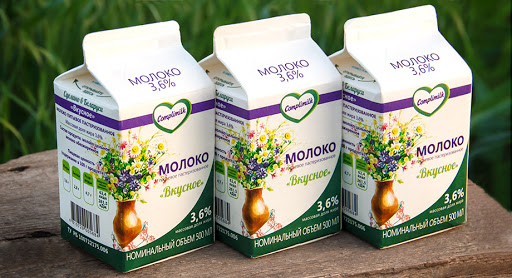What is an embargo: from seizure of ships to economic sanctions
In this article:
What is an embargo Consequences of the oil embargo for Russia What is an embargoAn embargo is a ban on the import or EXPORT of any goods, services, currency and other valuables to a particular country. An embargo document is usually adopted for 12 months, but often the period is extended and the effect of prohibitive measures can last up to several decades.
Years of isolation: the longest-running US sanctions
The term embargo comes from the Latin word imbarricare and literally translates to "place behind a barrier." In the 18th century, when foreign trade was carried out mainly by sea, the embargo was used to denote an order to seize foreign ships anchored in ports or in the territorial waters of the state that imposed it.
Over time, the term began to be used in the field of international law and became not only an economic, but also a legal and political concept, and applies not only to countries, but also includes more specific sanctions against individuals, groups, enterprises and social movements.
The right to impose economic sanctions, in whole or in part, on a state that they consider to be a violator is vested in the heads of state, acting on the basis of local laws.
The construction of the Urengoy-Pomary-Uzhgorod gas pipeline was completed in 1984. Under sanctions from the US, the project was scaled down: instead of two gas pipeline lines, only one was laid, built partly from Soviet materials and equipment (Photo: Wikimedia Commons)
The Charter of the United Nations (UN) provides that the Security Council may decide to impose an embargo. Sanctions may include a complete or partial interruption of economic relations, rail, sea, air, postal, telegraph, radio or other means of communication, as well as the severance of diplomatic relations. Currently, there are 14 sanctions regimes against countries imposed by the UN Security Council.
In the Russian Federation, the application of sanctions (special economic measures) is regulated by the Federal Law “On Special Economic Measures” (No. 281-FZ of December 30, 2006). Sanctions may be introduced in order to ensure the security and interests of the Russian Federation, as well as to protect the rights and freedoms of its citizens. The decision to introduce special economic measures is taken by the President of Russia. The list of sanctions measures is developed and published in a decree by the government of the country.
Embargoes can take many forms, depending on their purpose, from comprehensive economic sanctions to more targeted measures such as arms embargoes, bans on foreign nationals from entering the country, financial restrictions, and restrictions on commodity trading. Sanctions are based on the assumption that coercive measures are imposed to maintain or restore international peace and security. Economists carefully study the effects of sanctions and recognize that they are not always effective and do not achieve their goals.
Guide to sanctions and restrictions against Russia. The main thing
Economic (trade) embargoAn economic sanction by which a state or group of states suspends trade with another country. The interruption of economic relations can be complete or partial: in the latter case, we can talk about the supply of certain goods: weapons, consumer goods, food products, nuclear technology, oil, gas, etc.
Economic sanctions could lead to higher prices for a number of goods (Photo: Shutterstock)
The economic embargo is divided into subtypes if a certain type of goods is prohibited. The most commonly used types of economic embargo:
food embargo. Ban on the export or import of food products. In 2014, Russia, in response to economic sanctions against certain Russian legal entities and individuals, imposed a ban on the import of a wide range of agricultural products and food from the EU countries, Norway, the usa, CANADA and other countries. The ban includes MEAT, sausages, fish and seafood, vegetables, fruits, and dairy products. As sanctions persisted, Russia extended its retaliatory measures and expanded the list of countries subject to this embargo. In September 2021, the food embargo was extended until December 31, 2022.DIRECTOR of the Federal Scientific Center for Food Systems. V.M. Gorbatova, an expert in the food industry, DOCTOR of Technical Sciences Oksana Kuznetsova, in a conversation with RBC Investments, noted that under the conditions of the 2014 sanctions, Russia not only did not lose in the food sector, but, on the contrary, actively increased exports, not only of raw materials, but and finished products. “At the moment, on March 24, no country has officially announced a food embargo against Russia. But the main problem now is the rupture of supply chains and the growth of the exchange rate. Also, as a negative point, one can note the stoppage of investment activities of localized multinational companies. Food additives and a number of packaging remain problematic categories. Russia has a greater number of climatic zones, different soils and agrosystems. If sanctions are imposed, Arms embargo.A ban on the sale or supply of weapons, related materiel and technology. In March 2021, the United States included Russia in the list of countries for which there is a ban on the export and import of weapons and defense services. Sanctions have become one of the restrictions under the American law on the control of chemical and biological weapons and the prohibition of their use of 1991 in connection with the situation around Alexei Navalny. Alexei Navalny was hospitalized in August 2020. The German authorities, where he was taken for treatment, made the allegation that Navalny had been exposed to a poisonous substance from the Novichok group, which is on the list of chemical weapons. The Russian authorities stated that before Navalny was taken to Berlin, no toxic substances were detected in his body. Energy embargo. Ban on import or export, depending on the initiator of sanctions, oil, gas and other and other energy sources. In 1973, the member countries of the Organization of the Petroleum Exporting Countries (OPEC) imposed an oil embargo on the United Kingdom, Canada, the Netherlands, the United States and Japan, who supported Israel during the Yom Kippur War against Egypt and Syria. Over the next year, the price of oil quadrupled from $3 to $12 per barrel. The oil embargo was the catalyst for a crisis in the global economy, with double-digit inflation in the countries targeted by the sanctions.
FSMTC in response to US sanctions recalled the last deliveries of the WWII era
Financial embargoPhoto: Shutterstock
Prohibition or restriction of financial transactions, restriction of access to financial markets, including stock exchanges, ban on any type of investment, freezing of assets of the Central Bank of the target country, ban on lending to private banks and other legal entities, restrictions on money transfers, freezing of property assets of individuals and organizations, a ban on the provision of financial assistance, etc.
The West decided to freeze the assets of the Bank of Russia. What is important to know
How many reserves of the Central Bank of the Russian Federation are frozen in the G7 countries (Photo: RBC)
A subspecies of financial sanctions include a gold embargo - a ban on the export of gold introduced by the state to protect its gold reserves, or, conversely, a ban on the import of gold from a violating country. The gold embargo - a ban on transactions with gold from the reserves of the Russian Central Bank or the implementation of its transportation, as well as the sale of gold to Russia - was discussed by US senators as a separate bill. However, the US Treasury explained that the already existing package of sanctions includes an embargo on any transactions with gold, if the transaction on it will be connected with the Bank of Russia, the NWF or the Ministry of Finance of the Russian Federation.
Technology embargoA high-tech embargo limits the export and import of semiconductors, software and more. (Photo: Shutterstock)
Restrictions on the supply of high-tech equipment and software. The ban may include equipment for the oil and gas industry and the energy sector, “dual-use” goods, microcircuits, computers, consumer electronics, telecommunications equipment, technologies related to artificial intelligence and robotics, etc. US sanctions imposed on March 3, 2022, for the export of high-tech products to Russia are extended to the supply of equipment for industry and government needs, not only American-made, but also goods from other countries that use American technology. An exception is made for individual use by ordinary consumers, such as personal computers, modems, mobile phones, digital cameras.
Political embargoMost often, political sanctions include the entire range of restrictions imposed on the country, since in a diplomatic conflict, the countries that applied them seek to change the policy of foreign governments. Among the exclusively political embargoes can be attributed a diplomatic boycott - a complete break in relations between countries or a partial restriction of the work of embassies and consulates. On February 23, 2019, Venezuelan President Nicolas Maduro announced that the country was breaking off diplomatic and political relations with the United States. The reason for the aggravation in relations between states Maduro called the attempt of the American authorities to carry out a coup d'état in Venezuela.
Which countries announced sanctions or severance of diplomatic relations with Russia, from February 21 to March 21, 2022 (Photo: RBC) Transport embargo Sea embargo. Arresting foreign ships anchored in ports or in the territorial waters of the initiating country, preventing their departure, as a rule, to facilitate possible searches by the police, as well as to prevent the spread of diseases or disclosure of information that may pose a threat to the security of the state. Air embargo.Prohibition of takeoff and landing of any aircraft owned, leased or operated by certain states or entities. In February-March 2022, European states, the United Kingdom, the United States and Canada imposed a ban on flights of civil aircraft operated by Russian air carriers and/or registered in Russia. Russia responded with mirror restrictions on the use of its airspace by civil aircraft of foreign airlines.
Air embargo - closing the sky for aircraft (Photo: Shutterstock)
The Ministry of Transport called the amount of expenses for flying around Russia by foreign companies
Environmental embargoA ban, expressed through economic sanctions, but used to protest against the environmental activities or treatment of representatives of the fauna of any country. In 1998, the United States banned the supply of seal products from Norway, explaining this by concern for the environment and support for mass protests against the hunting of these animals. Embargoes imposed by the World Trade Organization (WTO) prohibit the import and export of endangered animals and plants.
Consequences of the oil embargo for RussiaEmbargoes hurt the economies of economically weaker countries than economically stronger countries. An embargo often leads to counter-sanctions: the embargoed country imposes retaliatory restrictions. As historical data show, losses in the sanctions war are borne by both sides - the negative consequences are reflected in trade, business and citizens. In the long term, countries, both those under sanctions and those that impose them, try to minimize their economic risks in the future, striving for the self-sufficiency of their own economy.
The sanctions war launched between the countries of the West and Russia in February-March 2022 is unprecedented in its scale. There are 7,883 sanctions against Russia, of which 5,129 were imposed between February 22, 2022 and March 25, according to the Castellum.ai sanctions tracking database. In terms of the number of sanctions imposed, Russia ranks first in the world, ahead of Iran (3616) and Syria (2608). The Russian economy is the largest against which economic sanctions have ever been applied.
Russia became the leader in the number of sanctions imposed (Photo: RBC)
24.02 - 24.03. What happened in Russia and the world over the past month - in RBC infographics
Ban on the import of Russian oil into the United StatesOne of the most talked about of the many sanctions has been the oil embargo.
On March 8, 2022, US President Joe Biden announced a ban on the supply of oil, gas and coal from Russia. The United States also banned its citizens from making new investments in the Russian energy sector and from financing foreign companies making such investments.
European countries are considering a possible oil embargo against Russia or other restrictions on Russian energy resources.
How the European Union plans to abandon Russian gas, oil and coal
Oil and gas revenues occupy a significant share in the Russian budget. The dependence of the Russian federal budget on oil and gas revenues has been consistently decreasing in recent years, but according to preliminary results for 2021, their share again amounted to more than a third:
2018 — budget ₽19.45 trillion, oil and gas revenues ₽9.0 trillion (46%);
2019 — budget ₽20.2 trillion, oil and gas revenues ₽7.9 trillion (39%);
2020 — budget ₽18.7 trillion, oil and gas revenues ₽5.2 trillion (28%);
2021 — budget ₽25.3 trillion, oil and gas revenues ₽9.1 trillion (36%).
The most obvious consequence of the oil and gas embargo will be a decrease in demand for Russian oil and, consequently, a reduction in the income of the Russian government, says Gerhard Tews, a professor at the New Economic School. “Theoretically, one can assume that there will always be someone who will be ready to buy oil that the US and other countries will stop importing. However, whoever wants to do this is likely to ask for a discount, so that the Russian government's revenues will still be reduced, albeit not to the extent that [the initiators of the sanctions] intended. A fall in income will lead to a reduction in spending. The Russian government will have to decide what costs to cut,” the expert says.
The largest Russian budget expenditures are related to the social policy item (Photo: Shutterstock)
Over the next few weeks, Russia is likely to be overstocked with unsold diesel and gasoline, writes the Financial Times, citing Energy Aspects analyst Robert Campbell. As a result, demand for crude oil from Russian refineries may be reduced, which will lead to a reduction in its production.
The exchange rate of the ruble, which, among other things, is supported on the stock exchange by sales of 80% of foreign exchange earnings by exporters, may weaken even more if these companies lose all sales channels.
What will happen to oil prices because of the embargoThe US embargo on the supply of oil from Russia has affected a sharp increase in oil prices - a barrel of Brent has already risen above $130.
The United States refused to import Russian oil. What does this mean for the market
An embargo of this kind can be seen as an artificially induced negative oil supply shock. Despite the political decision to avoid buying in a particular country, the level of demand remains and the price of oil is rising.
“During the most famous oil embargo in 1973-1974, when OPEC decided to stop selling oil to Western countries, the price of oil more than doubled in a short period of time, and quadrupled by the end of the embargo. Russian oil accounts for 10% of world oil supplies, while OPEC in 1973 provided 50% of oil supplies on the global market. I guess the current situation is less serious. Even if other countries eventually join the embargo, a doubling of the price of oil - breaking the $200 per barrel mark - is unlikely," said Gerhard Tews.
In the current tense situation, oil prices in the world may rise to $150-180 per barrel in the short term, says Ildar Davletshin, a leading Russian market analyst at Wood&Co. According to Deputy Prime Minister Alexander Novak, the price per barrel of oil may rise to $300 or more if Russian oil is abandoned.
Follow the news of companies in our group "Vkontakte"



























































